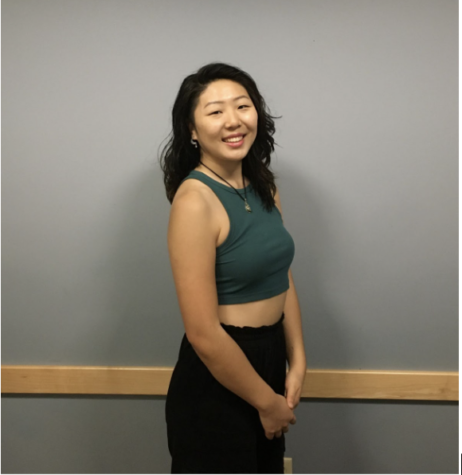
“It’s been a journey for sure over the past four years, but I feel like I brought a certain culture with me into the culture that was here. And it took me a while to wrangle, to blend them together or to figure out where I was. Every Third Culture Kid goes through that process.”
In the Kyrgyzstan village where Aspen Haw, 22, grew up, her neighbors’ chickens often flew into her family’s yard; occasionally, an unruly goat would jump over the fence. Haw’s family worked as missionaries in Kyrgyzstan for 16 years. Haw was born in California, moved to central Asia at age two and lived in a village in Kyrgyzstan with her family for 11 years before moving to the capital city, Bishkek. The Haw family lived there for five years.
Both of Haw’s parents immigrated from South Korea to the U.S. with their families when they were in elementary school, which is why Haw describes herself as a third-culture kid — someone who grew up in a culture different from either of her parents.
Haw was homeschooled since her parents did not want her in Kyrgyzstan’s Russian school system, which Haw described as a stressful environment where classes started at 6 a.m. and included “lots of yelling and strict classroom management.” Haw remembers her time in the village as lighthearted — she biked to friends’ houses in the afternoons and played games outside until sunset.
She explained that her parents were close with two other nearby missionary families and the parents would take turns teaching Sunday school lessons and joint homeschool lessons. Haw said they would get together every month for a potluck and fellowship in their church, nurturing the hospitality and close relationships highly valued in Krygyz culture.
When Haw came to Biola in 2019 to major in English and theater, she got to know other global students during orientation. This was a pivotal experience for her. Haw described the global student program as a safe place where she could be “completely and unapologetically” herself. Haw said she and the other global students taught each other phrases from their home languages and supported each other through cultural and identity crises. They also commiserated together when they saw news of people in their home countries struggling and wrestled with feelings of helplessness as they sat at Biola, thousands of miles away and unable to step in.
Along with those struggles, Haw explained that she experienced a lack of diversity in her majors, which was challenging. In contrast to the blend of cultures represented at the global student orientation, Haw described the theater and English departments as “pretty white-dominated.” She suggested one reason could be that those fields “may be less-valued among the Asian community because of the assumed income.” Haw said that parents want their children to succeed financially, so a passion for the arts, where a high paycheck is not guaranteed, is not largely encouraged.
In regard to the English curriculum, Haw noted that “what is considered to be ‘literature’ in the scholarly academic just ends up being not very diverse voices.” However, she said that trend seems to be changing slowly and described some classes which included books of different authors and voices from around the world, something she said is very valuable.
“I don’t find many people like myself in those departments,” Haw said. “I know that things are changing in the scholarly world and people are realizing that we need to listen to people of color’s voices, but it is happening slowly. I do wish that there were more students like me in the English department, but what can you do? It’s Biola. For theater, it’s kind of the same deal. There’s not many Asians or people of color. There might be more now with the new freshman class. But because of Biola’s statistics, it’s hard to expect otherwise.”
Haw emphasized, however, that she never felt like she had to hide her culture at Biola, and that her professors have encouraged her to share her experiences. She said she did not believe her voice had to be quieted in English and theater spaces — rather, she increasingly saw the need for diverse voices to be amplified. To that end, Haw plans to get an agent and pursue acting roles in Los Angeles after graduation to magnify her own voice on the big screen.


